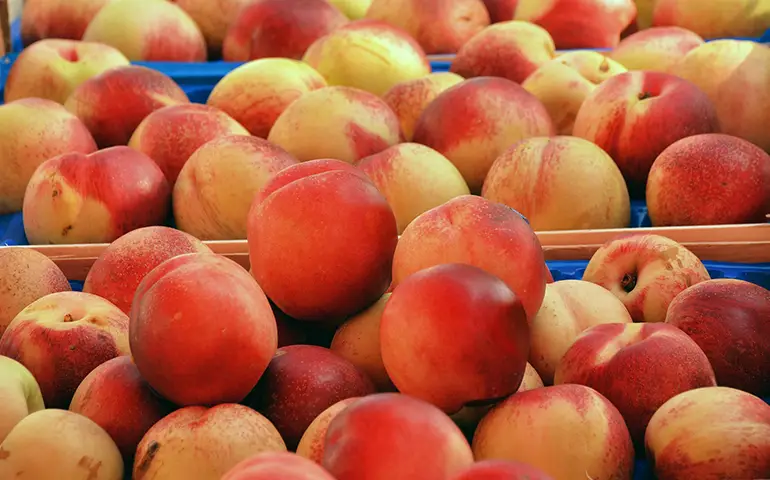

Instrumentation from SepSolve Analytical Ltd and Markes International Ltd has been used by an international research team to determine how fruit quality is affected by storage. Analysts from academia in Italy, Wales and England collaborated in order to discover the molecular quality markers in fruit, their ultimate aim being the provision of diagnostic kits to the food industry for the evaluation of fruit quality post-harvest, during storage.
Led by Dr Natasha Spadafora, the team from the University of Calabria in Italy, Cardiff University in Wales, University of Milan in Italy and SepSolve Analytical, revealed their research in a paper that has now been peer reviewed and published in the prestigious Nature journal’s Scientific Reports.
The paper is part of the research team’s so-called ‘FRUITY’ project and titled: “Fruit volatilome profiling through GC×GC‑ToF‑MS and gene expression analyses reveal differences amongst peach cultivars in their response to cold storage.”
Markes International’s sorbent thermal desorption (TD) tubes, Easy-VOC™ manual gas pump and TD100-xr™ automated TD system were used during the research process, as were SepSolve Analytical’s BenchTOF-Select™ time-of-flight mass spectrometer, INSIGHT® GC×GC flow modulator and ChromSpace® software.
The research group looked at peaches, because they have a short shelf-life and so require chilling during post-harvest storage and shipping. However, cold storage can affect their aromas, which affects the consumers’ experience.
The group’s study showed that 2-dimensional gas chromatography (GC×GC) significantly enhances the separation achievable with TD–GC–TOF MS. Indeed, the technique enabled 115 volatile organic compounds (VOCs) to be identified, 15 of which were used to distinguish between the peach cultivars. Also, individual cultivars reacted differently to cold storage, with different changes in VOC profiles seen after seven days of storage (the typical time taken for shipping peaches from southern Italy to northern Europe).
Dr Spadafora commented: “The next stage of our project involves the correlation of aroma profiles with consumer perception, and to investigate the link with bioactive phytochemicals at various checkpoints throughout the supply chain – ultimately, to ensure delivery of nutritious products to the consumer. For this next step, I am excited to be using SepSolve Analytica’s new ChromCompare+ software platform, to see what additional information it can reveal by applying untargeted workflows to the GC×GC‒TOF MS data.”
ENDS
__________________________________________________________________________________
Press contact:
Dr Gavin Davies, Head of Communications
